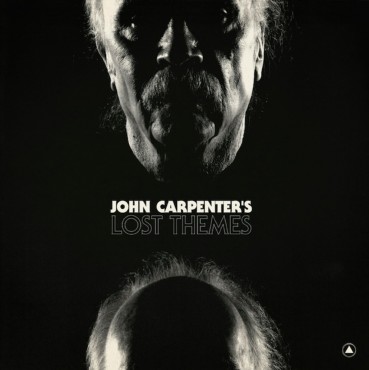Ask any film buff worth their salt about horror and John Carpenter is a name that’s bound to come up. The director of such cult films as They Live, the 1982 remake The Thing, and his master class in slasher horror, Halloween, Carpenter has worked tirelessly to frighten and thrill audiences for years.
What some may not know is how involved Carpenter is in composing the soundtracks for his own films; with 22 composition credits to his name, Carpenter has built a considerable career not only as a master of the visual, but the aural. It begs the question, then, why somebody with such an obvious investment in the soundscapes of the imagination never branched out beyond the limits of film to do something more singular—which brings us to Lost Themes.
Borne out of improvised recording sessions with his son, Lost Themes is the first recorded work released by Carpenter that isn’t attached to an existing film. The album is entirely instrumental and features a blend of synthesizer, electric guitar, and piano (as well as a few other flourishes), creating a variety of sounds not entirely unsuitable for one of Carpenter’s films.
In fact, I’d go so far as to say that this album works best when listened to in one sitting, as you would when you watch a movie. Lost Themes is not built on singular hooks; rather, it flows seamlessly from song to song, providing the tools for you to conjure your own images and associations. The songs themselves can go through dramatic shifts in mood and arrangement in an instant which in turn makes it difficult for anyone to latch onto a specific melody or idea, simply because it doesn’t tend to stick around for very long. The song titles themselves—”Vortex,” “Mystery,” and “Wraith,” to name a few—speak to the album’s free-flowing and nebulous nature.
That said, a few tracks stand out more than others. The aforementioned “Vortex,” for example, is a spectacular introduction to the album; somebody familiar with Carpenter’s aesthetic would have no trouble imagining its driven guitars and piano setting the stage for an action film in a rain-slicked dystopian cityscape. The urgent piano arpeggiations of “Abyss,” meanwhile, transition gracefully into eerily spacey synth melodies.
Conversely, “Domain” stands out for being a bit dated. Whereas much of Lost Themes finds Carpenter sounding incredibly modern while still evoking the past, “Domain” can’t seem to shake its cheese factor enough for my liking. There are moments in the 8-minute “Obsidian” where I feel the same way—a series of missteps in an otherwise very strong piece of work.
In the end, Lost Themes is a niche title with strong appeal for those already in the know regarding Carpenter, or those who are willing to be adventurous in their listening. This is an album that rewards numerous listens and patience; those looking for a catchy hook or the next big single will not find it here. Much like Carpenter’s film career, Lost Themes takes some unsuccessful chances that may sour the uninitiated. But, it’s a distinct and unique album, flawed in execution but uncompromising in vision. From a director like John Carpenter, I could not have asked for anything more.







